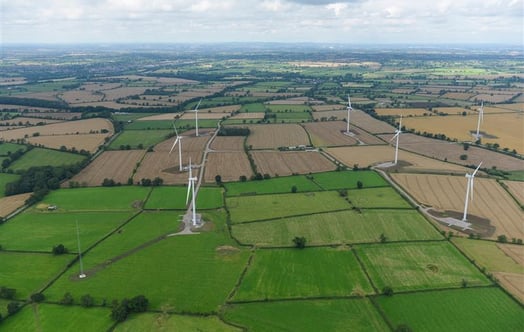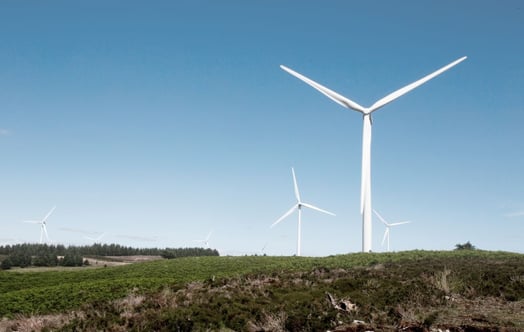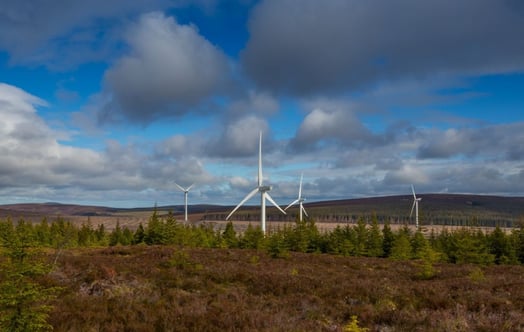HYBRIT: SSAB, LKAB and Vattenfall first in the world with hydrogen-reduced sponge iron
SSAB, LKAB and Vattenfall have now produced the world’s first hydrogen-reduced sponge iron at a pilot scale. The technological breakthrough in the HYBRIT initiative captures around 90% of emissions in conjunction with steelmaking and is a decisive step on the road to fossil-free steel.
The HYBRIT pilot plant in Luleå, Sweden has completed test production of sponge iron and demonstrates that it is possible to use fossil-free hydrogen gas to reduce iron ore instead of using coal and coke to remove the oxygen. Production has been continuous and of good quality. Around 100 tonnes have been made so far. This is the first time ever that hydrogen made with fossil-free electricity has been used in the direct reduction of iron ore at a pilot scale. The goal in principle is to eliminate carbon dioxide emissions from the steelmaking process by using only fossil-free feedstock and fossil-free energy in all parts of the value chain.
Hydrogen-based reduction is a critical milestone, which paves the way for future fossil-free iron- and steelmaking. SSAB, LKAB and Vattenfall intend, through HYBRIT, to create the most efficient value chain from the mine to steel, with the aim of being first to market, in 2026, with fossil-free steel at an industrial scale.
Last year, HYBRIT, a joint initiative of SSAB, LKAB and Vattenfall, began test operations to make hydrogen-reduced sponge iron in the pilot plant built with support from the Swedish Energy Agency. The technology is being constantly developed and the sponge iron that has been successfully made using hydrogen technology is the feedstock for the fossil-free steel of the future.
“This is a major breakthrough both for us and for the entire iron and steel industry. LKAB is the future supplier of sponge iron and this is a critical step in the right direction. Progress with HYBRIT enables us to maintain the pace in our transition and already in 2026, we will begin the switch to industrial-scale production with the first demonstration plant in Gällivare, Sweden. Once LKAB has converted its entire production to sponge iron, we will enable the transition of the steel industry and reduce global emissions by around 35 million tonnes a year, which corresponds to two thirds of Sweden’s entire emissions. This is the greatest action we can take together for the good of the climate,” says Jan Moström, President and CEO at LKAB.
“This technological breakthrough is a critical step on the road to fossil-free steel. The potential cannot be underestimated. It means that we can reach climate goals in Sweden and Finland and contribute to reducing emissions across Europe. At the same time, it creates new jobs and export successes. SSAB’s transition means we will reduce carbon dioxide emissions by 10% in Sweden and 7% in Finland. High-strength fossil-free steel will also allow us to help our customers to strengthen their competitiveness. As early as this year, we will deliver minor quantities of steel made using hydrogen-based reduction to customers, and in 2026 we will deliver fossil-free steel at a large scale,” says Martin Lindqvist, President and CEO at SSAB.
Fossil-free electricity and hydrogen storage
The hydrogen used in the direct reduction process is generated by electrolysis of water with fossil-free electricity, and can be used immediately or stored for later use. In May, HYBRIT began work on building a pilot-scale hydrogen storage facility adjacent to the direct reduction pilot plant in Luleå.
“Sweden’s and Vattenfall’s fossil-free electricity is a basic requirement for the low carbon footprint of hydrogen-reduced sponge iron. The breakthrough that we can announce today shows in a very real way how electrification contributes to enabling a fossil-free life within a generation,” says Anna Borg, President and CEO at Vattenfall.
FACTS/HYBRIT initiative
- SSAB, LKAB and Vattenfall, the three owners, launched the HYBRIT initiative in 2016. The pilot plant for the test production of sponge iron started operation on August 31, 2020 and on March 24, 2021, Gällivare was chosen for the site of the planned demonstration plant for the production of fossil-free sponge iron at an industrial scale.
- Under the HYBRIT initiative, SSAB, LKAB and Vattenfall intend to create an entirely fossil-free value chain, with fossil-free pellets, fossil-free electricity and hydrogen.
- With the HYBRIT initiative, technological development is taking place that challenges established and commercially available technology. The goal in principle is to eliminate carbon dioxide emissions from the steelmaking process by using only fossil-free feedstock and fossil-free energy in all parts of the value chain. Instead, the emission will be water.
- HYBRIT Development AB is a research and technology development company that will provide solutions for plants. Technological development takes place in close cooperation with owner companies.
- Investments of around SEK 250 million in a hydrogen gas pilot storage facility include two years of operation and a test program.
- The initiative has the potential to reduce carbon dioxide emissions by 10% in Sweden and 7% in Finland. The steel industry currently generates 7% of total global carbon dioxide emissions.
- Fossil-free iron and steel production using HYBRIT technology will require around 15 TWh of fossil free electricity a year at SSAB’s current production levels. Once completed, the conversion of LKAB’s operations will require a total of around 55 TWh a year (including most of SSAB’s requirement). This will require faster and more predictable permit processes to expand Sweden’s power network and electricity production.



